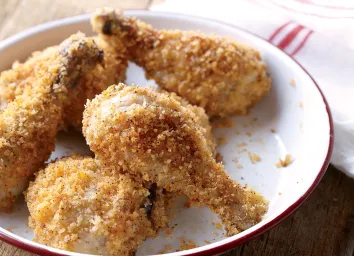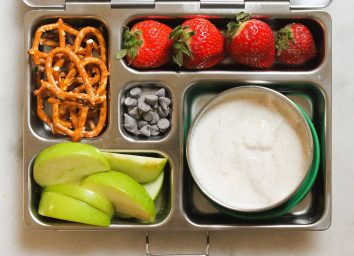The Best Baby Food Brands to Buy, According to Nutritionists

Probably one of the most Instagrammable milestones that a baby achieves is starting solid foods. What is cuter than a baby covered from head to toe in pureed butternut squash baby food? Other than babies dressed like food on Halloween, nothing.
While introducing solid food to baby is a rite-of-passage, choosing the most appropriate baby food brands for your little nugget can go from exciting to stressful in a second. One walk down the baby food aisle, and you will see a sea of different brands, combos, consistencies, and cartoon characters. How does a parent know which one to choose?
We put together a guide of what dietitians look for in the best baby food brands,
Why does your baby need baby food?
First, let’s break down why a parent may choose a pre-packaged baby food. After all, most baby foods are simply pureed food in a container. “Parents often purchase pre-made baby foods in order to have nourishing options readily available for them to offer or for other caretakers to offer as solids are introduced,” says Ashley Smith, RD, MPH, a pediatric dietitian, and owner of nutrition counseling service Veggies & Virtue. “This can provide comfort, security, and confidence to new parents that their baby has nutrient-dense options for anyone to safely feed them.”
Whether baby food is pre-made or made from scratch, it benefits baby in many ways. “Baby food can benefit a developing child by providing necessary nutrients to support healthy growth and development, and sometimes by filling nutritional gaps that might otherwise be difficult to fill, explains nutritionist Sarah Staskiewicz, RDN, co-founder of Cultivate: Nutrition Content + Strategy.
“Baby food is a whole new world for baby! It exposes an infant to new smells, flavors, and textures. When babies start eating baby food, it helps support the development of necessary feeding skills, and gives them a sensory experience that supports the development of their sensory systems,” Staskiewicz says.
How do dietitian nutritionists choose the best baby foods?
Dietitians notes that there are several factors to keep in mind when selecting the “best” baby food:
- baby’s trends on the growth chart
- parents’ beliefs and preferences surrounding factors like organic foods, GMOs, and plastic packaging
- baby’s unique nutrition needs
While every dietitian has his or her own criteria for what they consider a “best” baby food, some factors are common on their mental check-list.
- High in veggies and low in fruit: “To choose the best baby food, I recommend looking for a combo of fruit and/or veggies plus fat content,” says registered dietitian nutritionist Kacie Barnes, MCN, RDN, LD, and owner of Mama Knows Nutrition
- Healthy fats: “As baby starts transitioning to less breastmilk or formula and increasing solids, it’s important to maintain a good intake of fat,” says Barnes.
- Variety is key: “It’s also important to consider variety,” Barnes says. “For baby to get the best nutrition, he or she will need to eat a variety of different types of foods. This will also help protect against any potential harms, such as excess heavy metals in certain baby foods. So, it’s important to avoid getting into a routine of serving baby the same foods day in and day out.”
- Avoid added salt and sugar: Meghan McMillin, MS, RD, CSP, LDN, IBCLC, a dietitian who is also a Board Certified Specialist in Pediatric Nutrition, International Board Certified Lactation Consultant, and owner of a private practice Mama & Sweet Pea in Chicago, agrees. She adds that parents should avoid baby foods that contain added salt and/or sugar.
Concern for allergies in baby food
While some parents try to avoid baby foods that contain ingredients that include the top 8 allergens (including peanuts and eggs) for fear of exposing their child too early and triggering an allergy in their little peanut, the American Academy of Pediatrics‘ position is that that earlier exposure to allergens may lead to fewer allergies in the long-term. Factors like family history and your personal pediatrician’s recommendations should be taken into consideration when following this advice.
A note on heavy metals
While many consumers are avoiding certain baby food brands found to contain heavy metals, it is important to note that these contaminants exist naturally in the environment and it is impossible to avoid them, especially when considering foods that are grown in the ground.
While many dietitians did not sway from choosing one brand over another based on the heavy metal report, many do encourage limiting or avoiding rice-containing products. That’s because research shows rice absorbs arsenic from the environment.
Dietitians also encourage that babies consume a variety of foods when it is age-appropriate to provide an intake of foods that may contain more heavy metals with other foods that are not as exposed.
The best baby foods, according to dietitians.
Choose from any of these dietitian-approved 11 best baby food brands depending on your baby’s needs.
1. SpoonfulOne
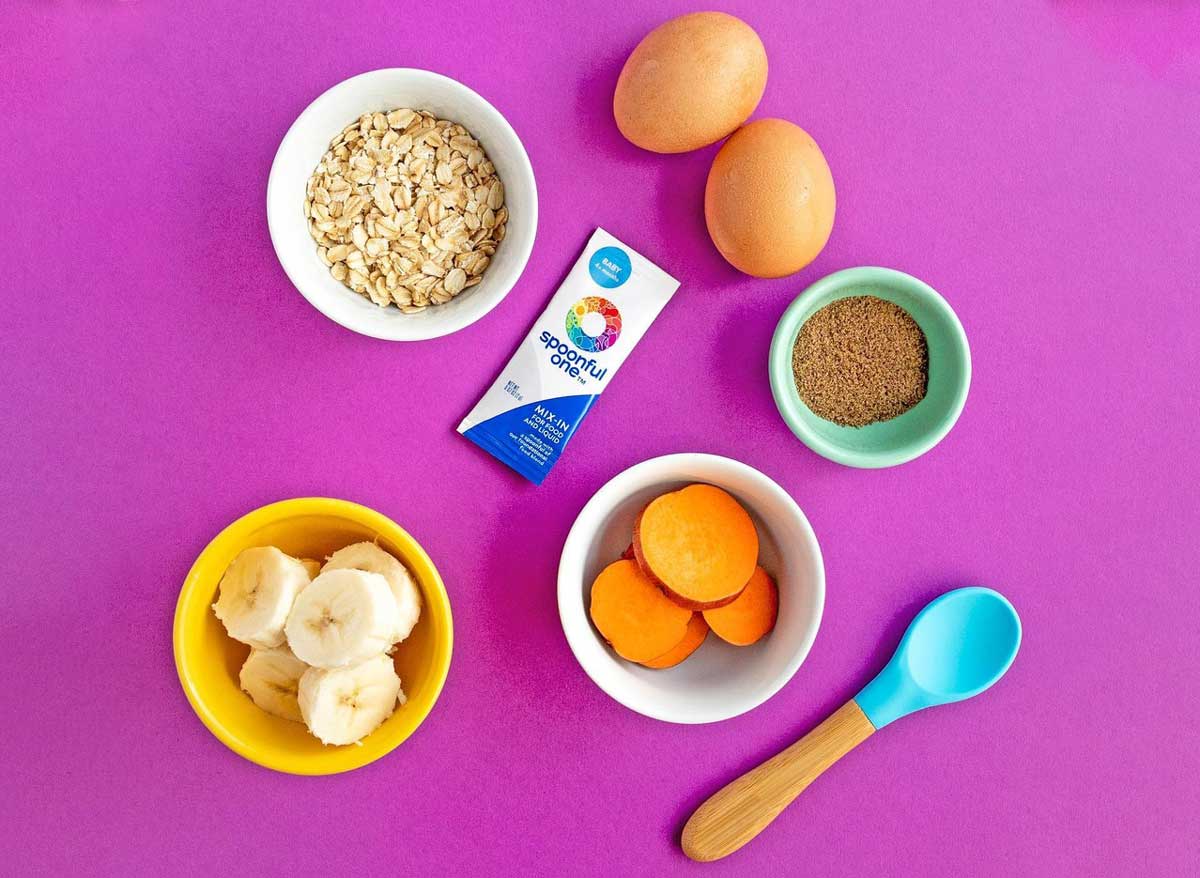
One of the most evidence-based concepts on the market is a baby food brand called SpoonfulOne. If a parent wishes to follow the American Academy of Pediatrics’ guidelines of exposing baby to the top allergenic foods early in life, this company’s food items support that goal.
SpoonfulOne was crafted by a pediatric allergist and provides baby with small amounts of all off the food groups associated with over 90% of food allergies.
Starting at 4-6 months, baby can be fed the mix-in powder, transition to the puffs, and eventually the oat crackers! Shockingly, they found a way to make these not taste like a fishy-peanutty-eggy mess (their products actually taste really good).
2. Serenity Kids Organic Baby Food
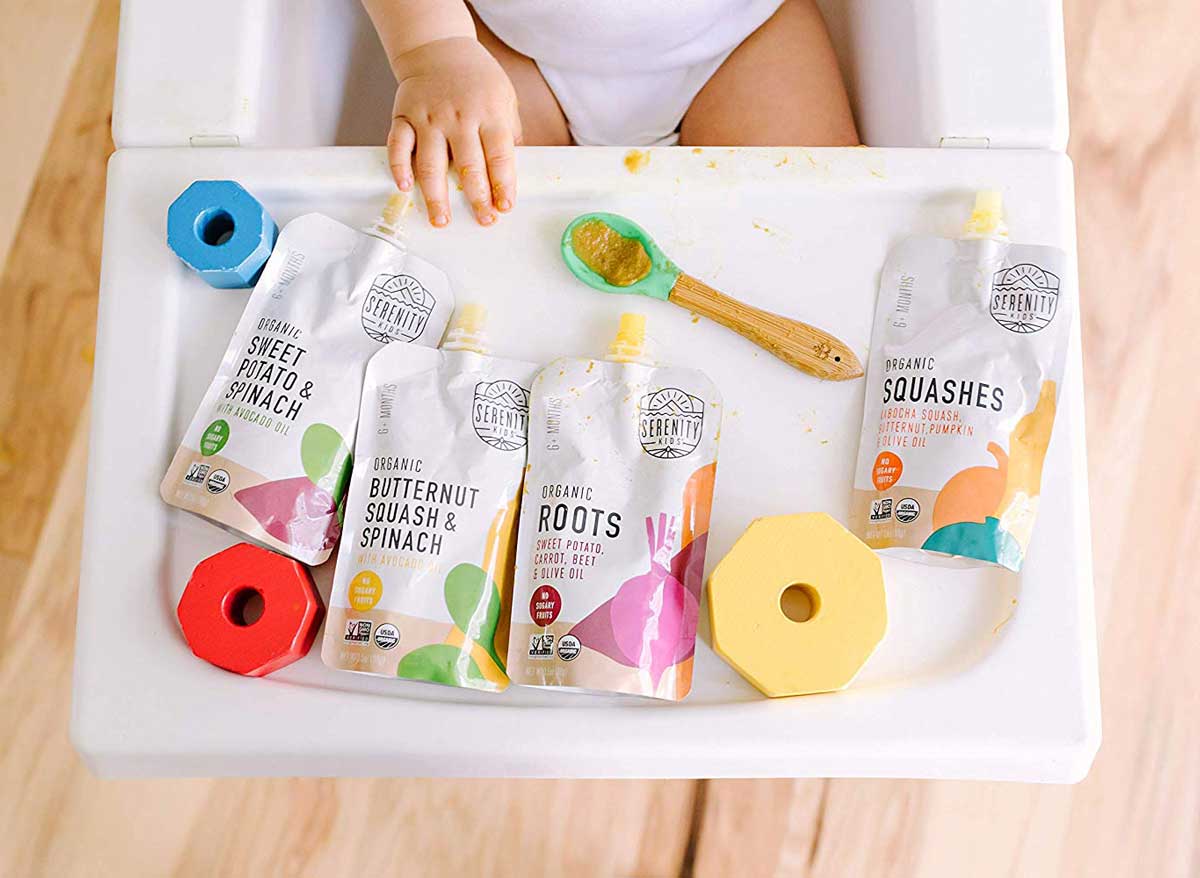
“The reason I love Serenity Kids is that they offer an alternative to the really sweet fruit purées and focus on veggies, high-quality protein, and healthy fats,” says Barnes. “If you’re going to buy baby food vs. make your own, I feel like Serenity Kids is the closest you’ll get to a home-cooked, wholesome meal in a pouch.”
3. Tiny Human Food Organic, Cold-Pressed Baby Food
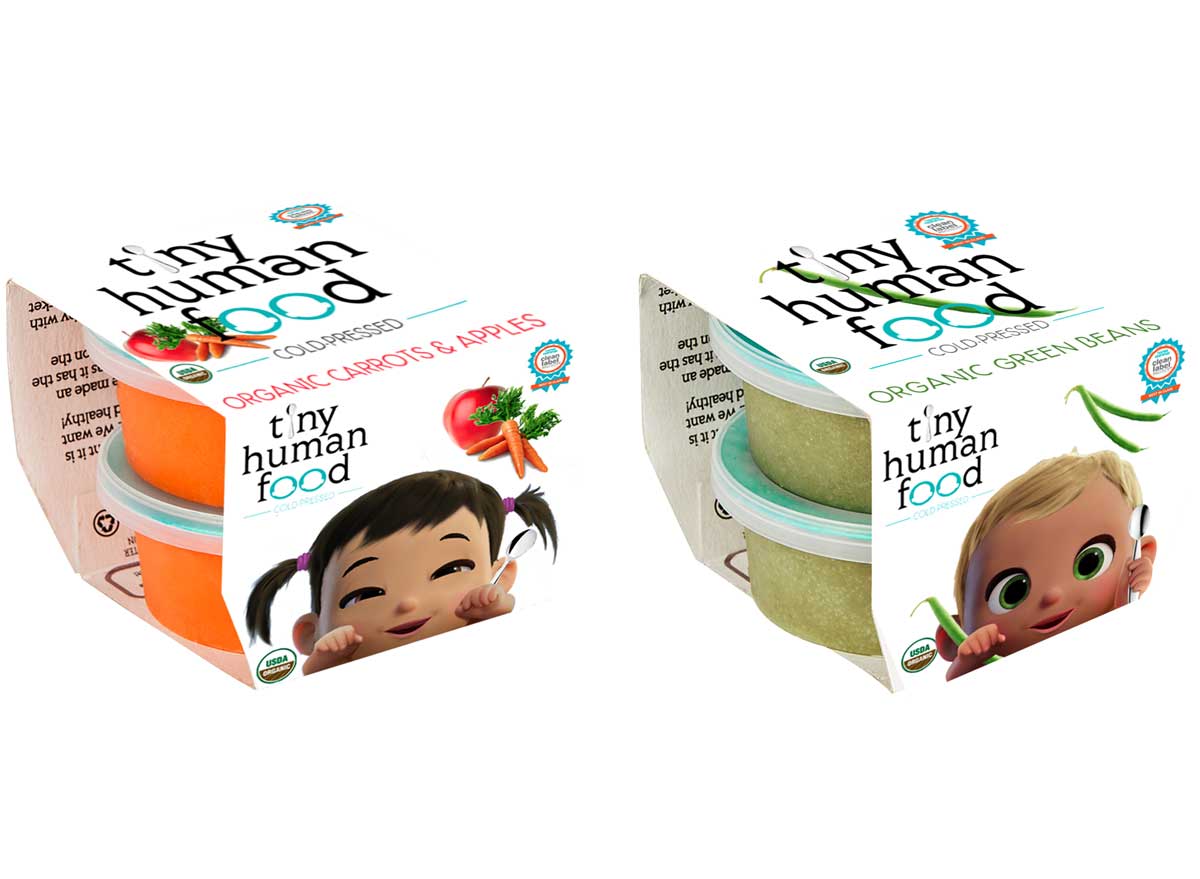
Tiny Human Food was created by a mom who felt frustrated finding refrigerated and fresh dog food available for purchase, but nothing similar for her baby. She took matters into her own hands and created a baby food that is made in small batches and pasteurized using high pressure pasteurization instead of heat (which may change the composition or vitamin content of certain foods). The food is sold in the refrigerated section and does not contain any preservatives. This baby food brand has received the Purity award by the Clean Label Project, which provides consumers assurance of ingredient purity.
4. Little Dish Fresh Food for Toddlers
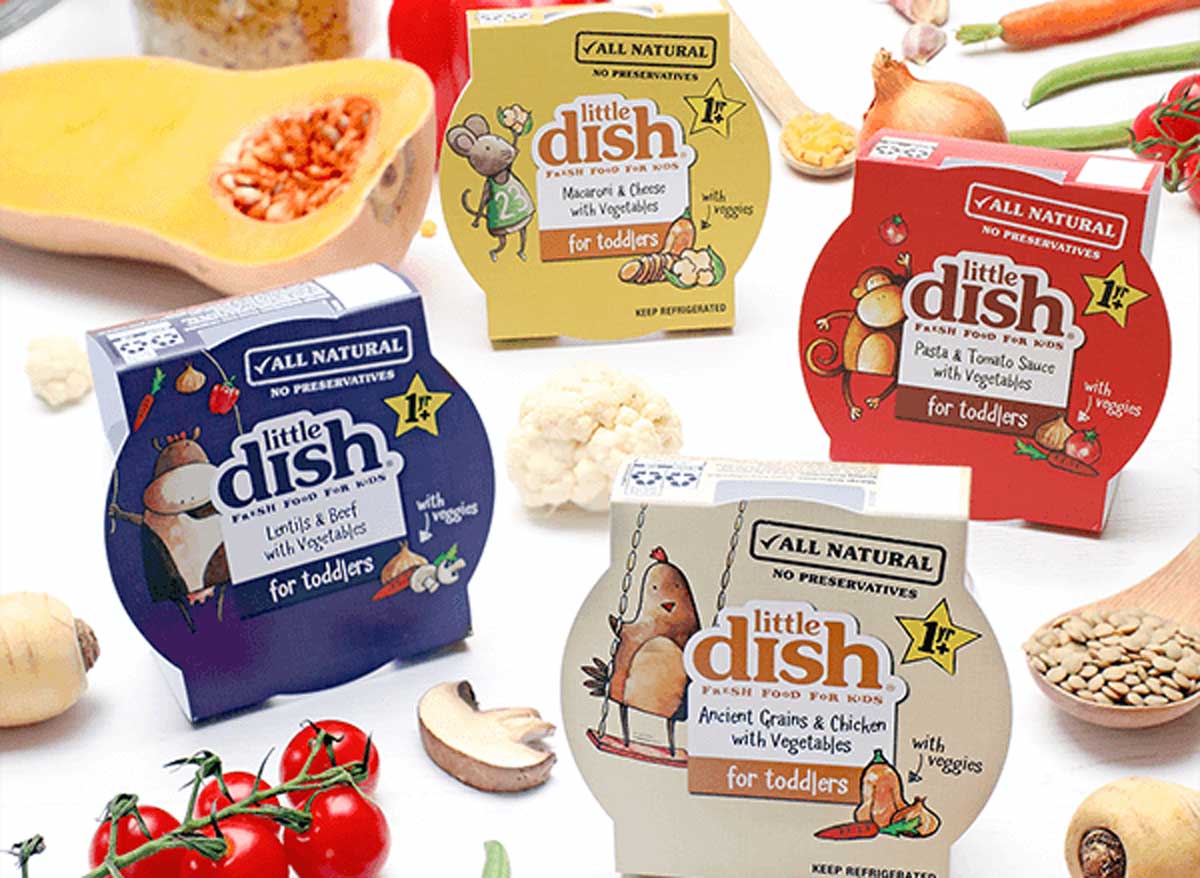
When baby grows into a toddler, Little Dish is a wonderful option when she is ready to be introduced to a variety of tastes and textures that support a diverse palate and set the stage for life-long healthy eating habits. Because Little Dish meals are “heat-and-serve”, they’re a wonderful solution for busy days when a homecooked meal isn’t always possible.
5. Fresh Bellies
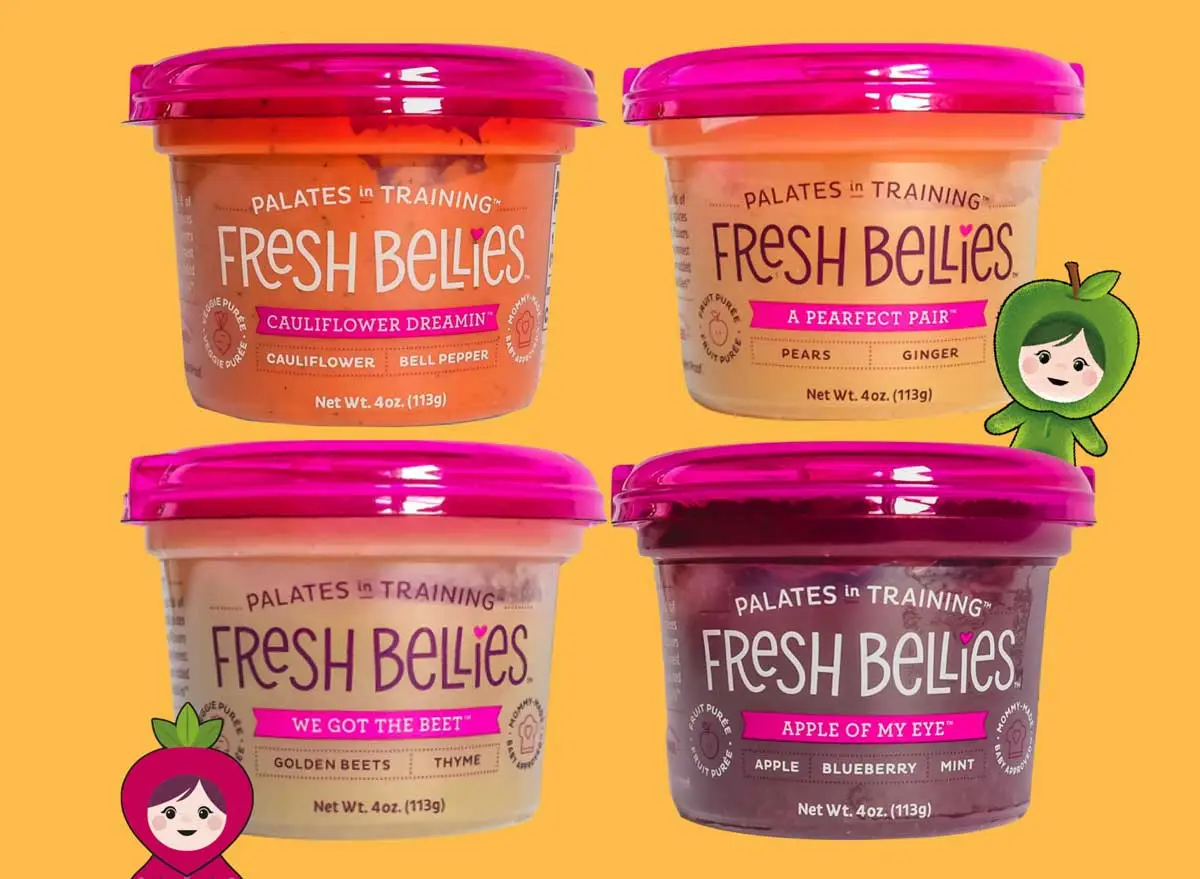
With no hidden sugary goop, Fresh Bellies includes savory seasonings—real herbs and spices—that are almost never included in baby food (think garlic). This teaches young palates to love savory food instead of sugars and sets them up for a lifetime of good eating habits.
Veggies are served as veggies and fruit is served as fruit—without the hidden sweetness.
6. Earth’s Best Organic
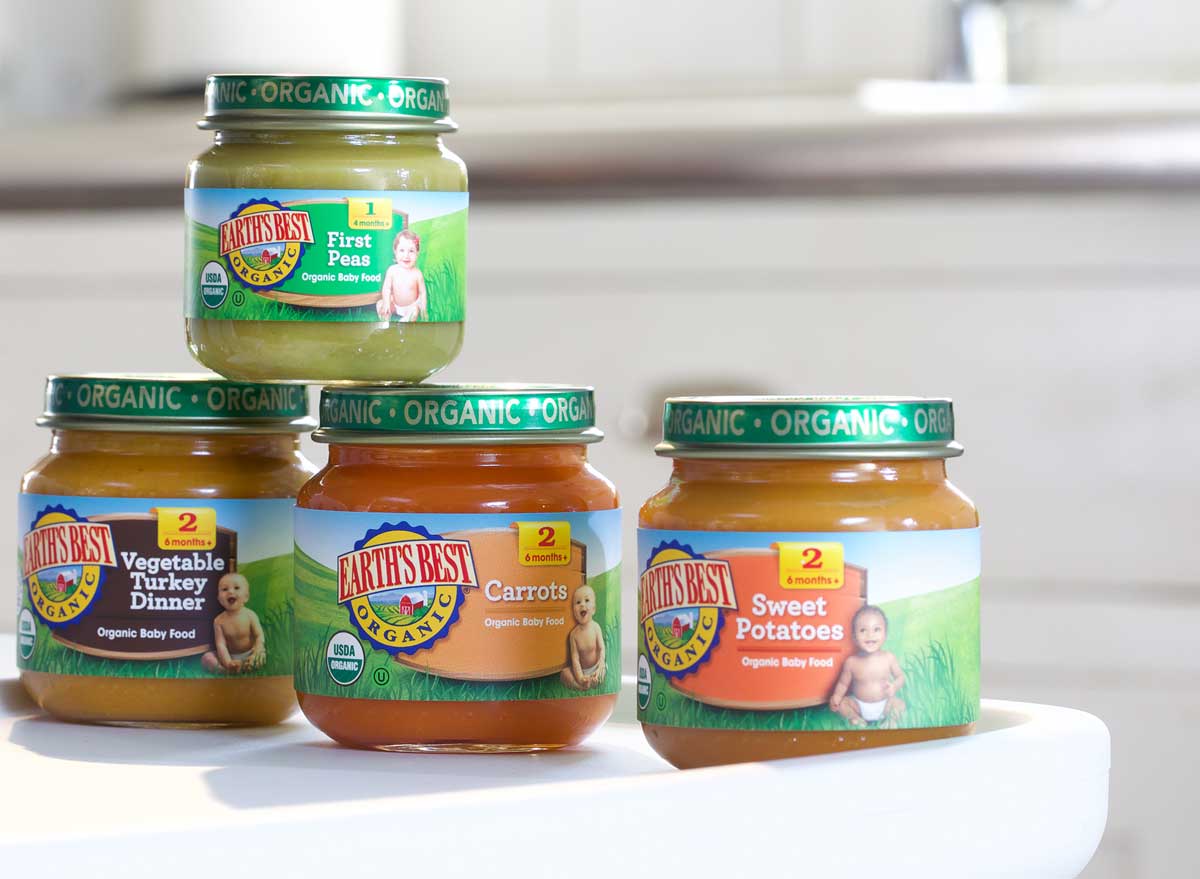
“I like Earth’s Best as all of their baby products are unsweetened, unsalted and don’t contain any artificial flavors, colors or preservatives,” explains Alex Caspero, RDN, CPT, a plant-based dietitian and co-founder of Plant-Based Juniors. “Lastly, they conduct rigorous product testing to guarantee quality and safety.”
7. Square Baby Organic Baby Food Meal Plan
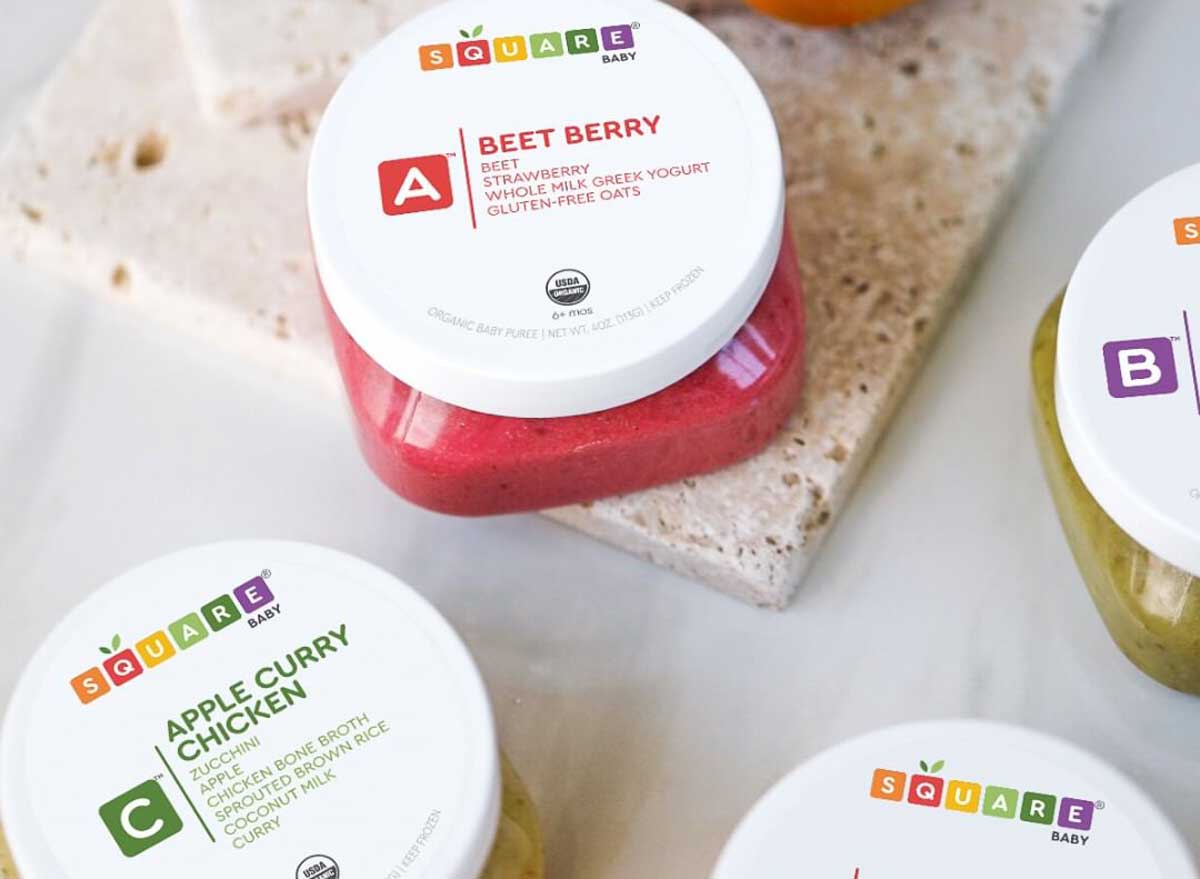
“I love Square Baby,” explains Elizabeth Ward, MS, RD, author of Expect the Best, Your Guide to Healthy Eating Before, During, and After Pregnancy. “Their food is organic, fresh, and much lower in sugar than other brands. Plus, the company delivers it frozen to your door. The CEO is a registered dietitian who has designed each of the foods as well as customized meal plans for each stage of development. Square Meals provide 100% of a baby’s nutrition, which takes the guesswork out of feeding a child. I also like the company for taking on the allergy question and offering foods with peanut, soy, fish, dairy, and eggs.”
8. Once Upon a Farm Cold-Pressed, Organic Baby Food
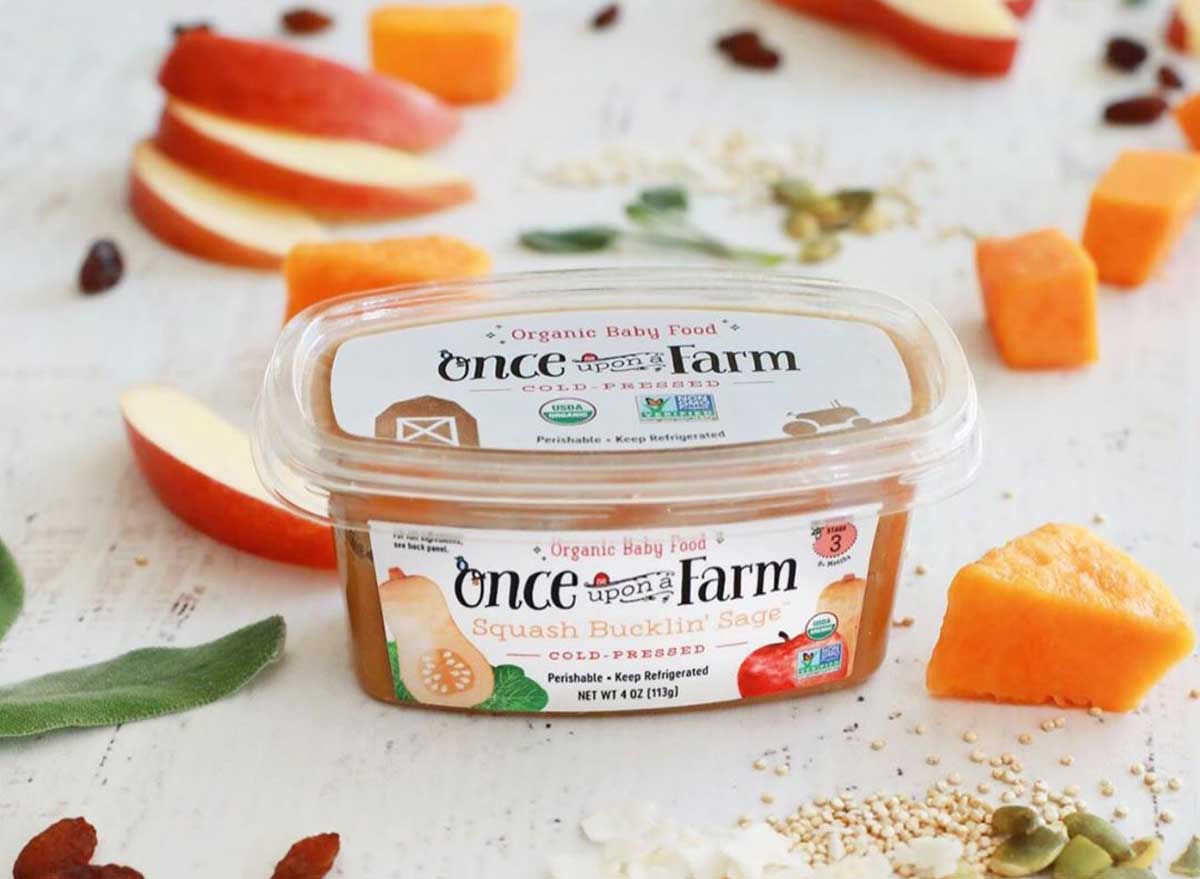
“I have recommended—and personally love—Once Upon a Farm,” says registered dietitian Colene Stoernell, MS, RDN, LD. “The ingredients are all real foods and is as close as you can get to a prepackaged item that is almost as good as homemade.”
9. Lil’ Gourmets
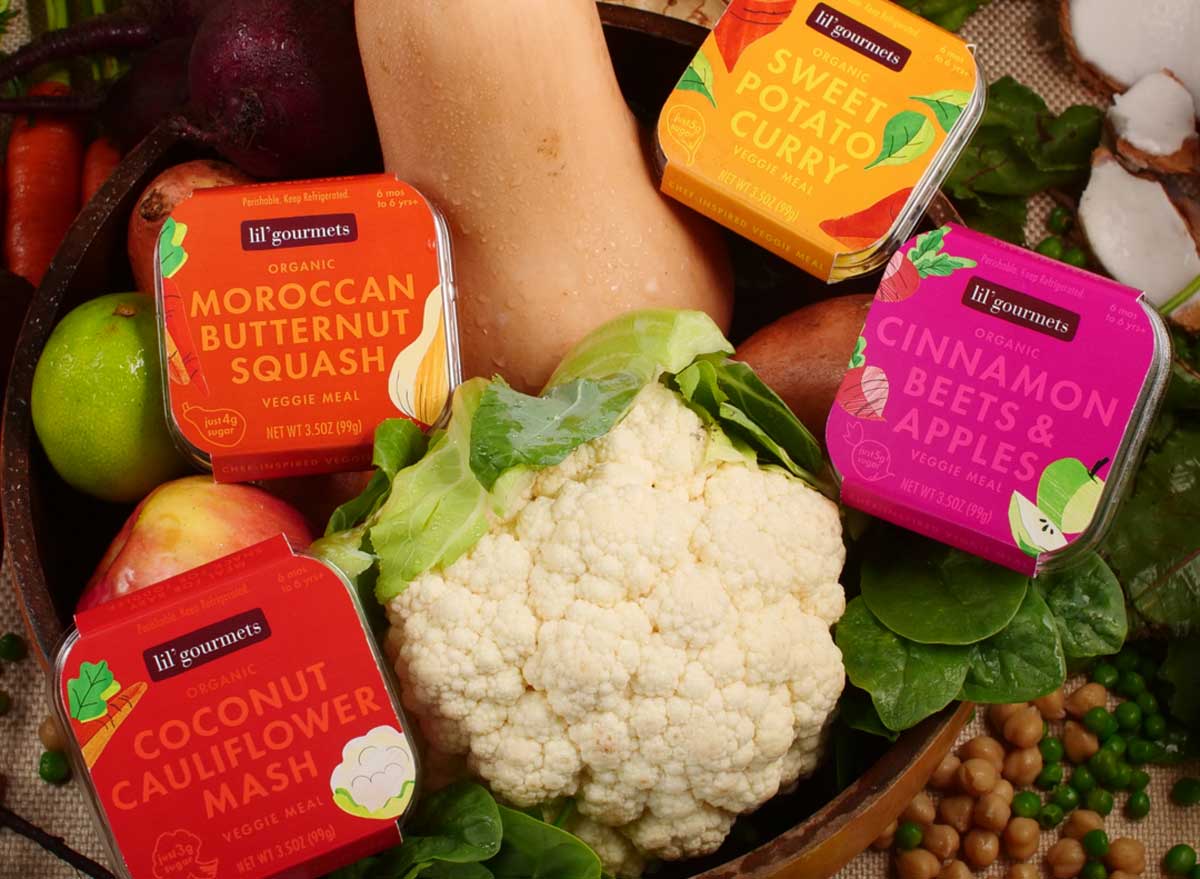
“I recommend the brand Lil’ Gourmets. They are organic and feature amazing spice blends which provide babies to a wide variety of flavors!” explains McMillin. Vegetables are the star of these meals with 70-95% veggies and complex spice blends.
10. Bambino’s Frozen Baby Food
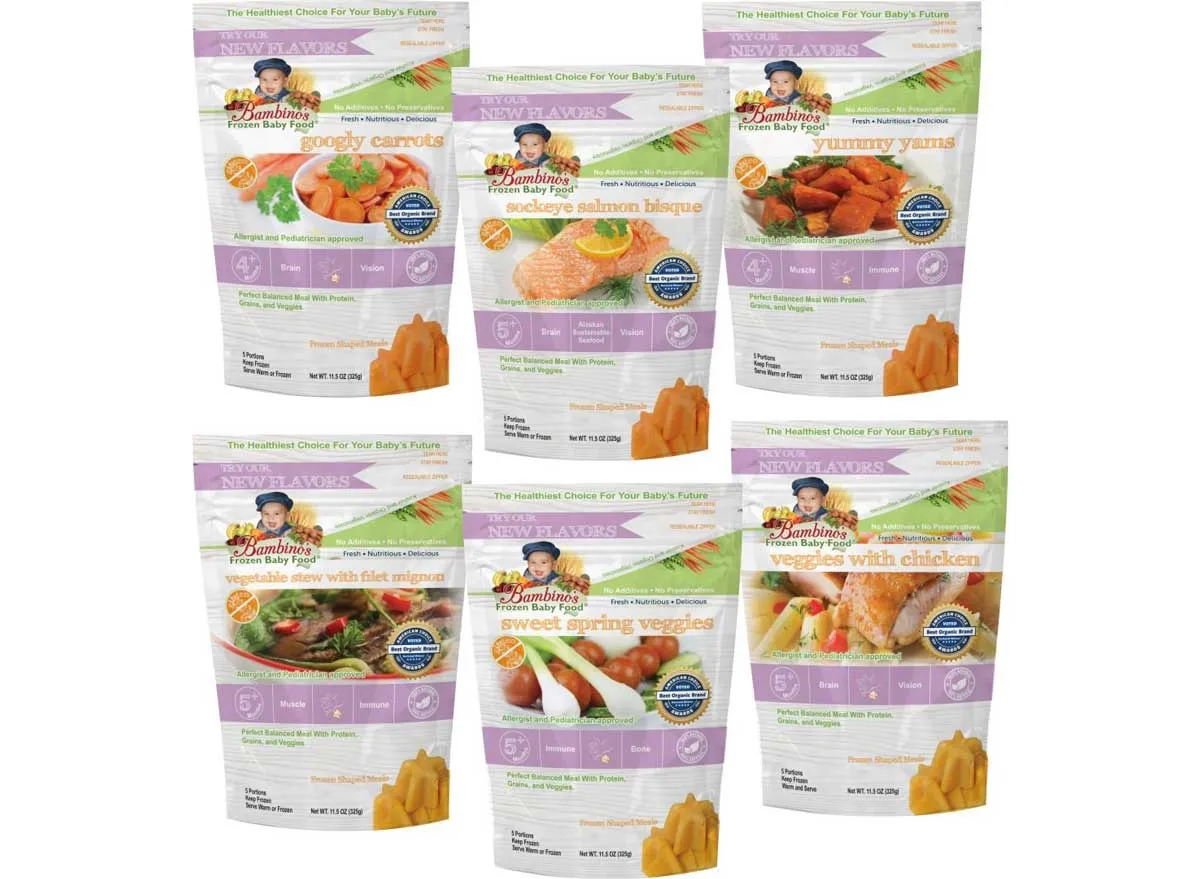
Bambino’s Baby Food was created by a physician who comes from a long line of farmers, so she understands the importance of quality farming practices. They source produce grown in Alaska. Why is that important? Because Alaksa is newer to agriculture, the farmers use fewer pesticides and herbicides when compared with other areas of the country.
Bambino’s provides protein and vegetables (no fruit) to familiarize baby with foods that are not so sweet. You will not find any jars or pouches in any of their packaging; their foods come in a frozen shape of a star to allow the baby to grasp the product and self-feed if it is age-appropriate. As baby gets older, the parent can defrost the star and mix it with other products like quinoa to add more texture.
11. Sprout
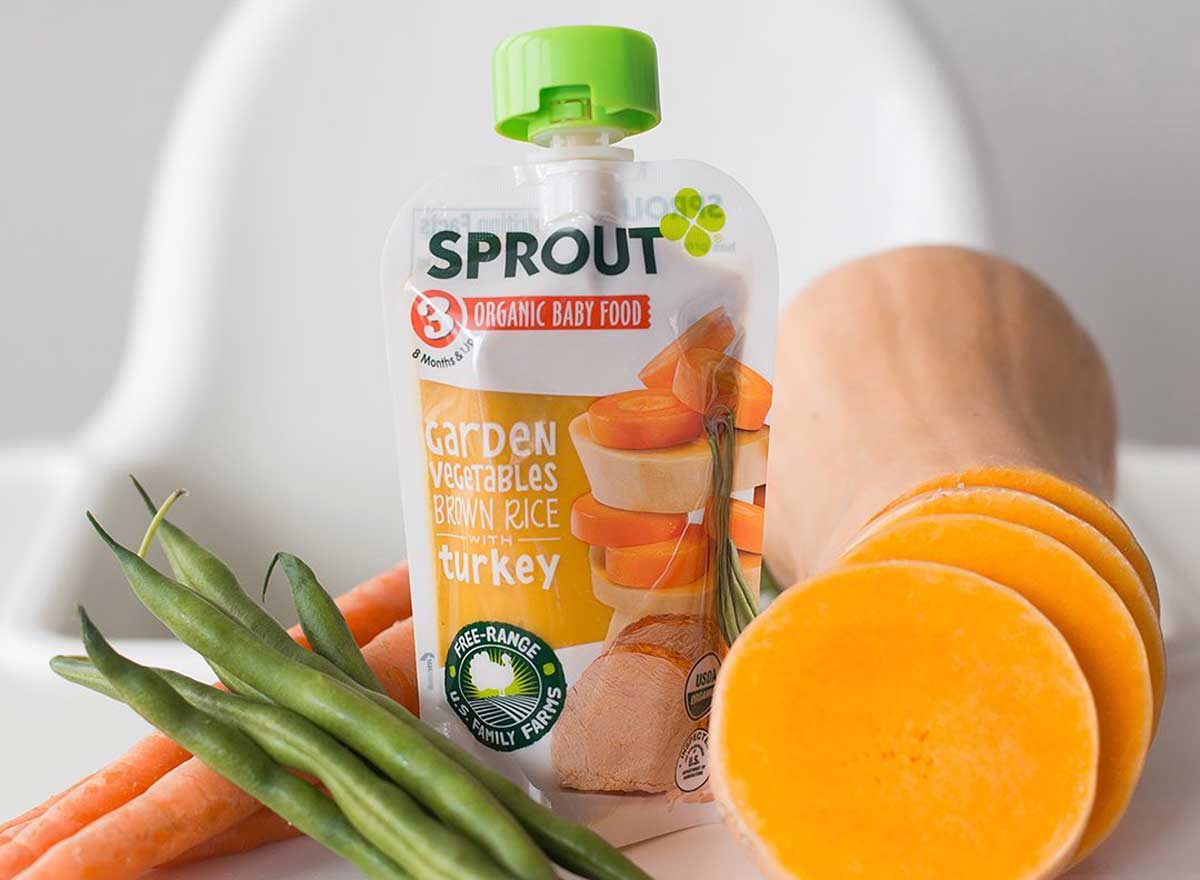
“I am a fan of Sprout Organic Baby Foods, as they do not contain artificial ingredients or sugars, and they lead with veggies,” explains Sharon Palmer, MSFS, RDN, The Plant-Powered Dietitian. Sharon adds that the products “are organic and have a diverse array of plant foods, including beans, lentils, squashes, kale, and spinach.”
The worst baby foods to buy.
There are some red flags that dietitians watch out for when evaluating baby foods.
Baby foods that contain a high amount of rice
For one, many choose to avoid baby food that contains rice. “Rice cereal has been recommended as a first food for babies because rice is not a common allergen. But we now know that it’s not harmful and it’s actually beneficial to go right to a variety of foods including various fruits and vegetables. Rice is less nutritious than many other foods and is also known to carry high amounts of arsenic, which can be more dangerous to babies due to their small size,” says Barnes. A better alternative would be an oat-based food.
Make sure your baby food does not include the following ingredients:
- honey (babies should not consume honey until they are one year old)
- salt
- added sugars
- artificial colors
Baby foods packaged in pouches
Another factor experts say qualifies a baby food as “worst” has less to do with the baby food and more to do with the packaging. Ward explains that she does not care for baby foods packaged in pouches, “which encourages babies to suck their food from a pouch instead of learning to eat from a spoon, which interferes with motor development.”
Expert panels echo the concern about baby food delivered in pouches. “Complementary foods marketed in baby food pouches often have a high energy density and are predominantly extremely high in sugar content, with up to almost 90 percent of the total energy content. Regular consumption bears the risks of imbalanced nutrient provision and increased risks for dental caries and overweight,” according to a position paper published in Molecular and Cellular Pediatrics in 2019.
If you’re using pouches, experts suggest serving the baby food by squeezing it directly onto a spoon instead of feeding baby directly from the pouch.
Bottom line
At the end of the day, as long as baby is being fed, growing appropriately, and reaching important milestones, your baby is likely being provided with enough nutrients to meet her needs.

